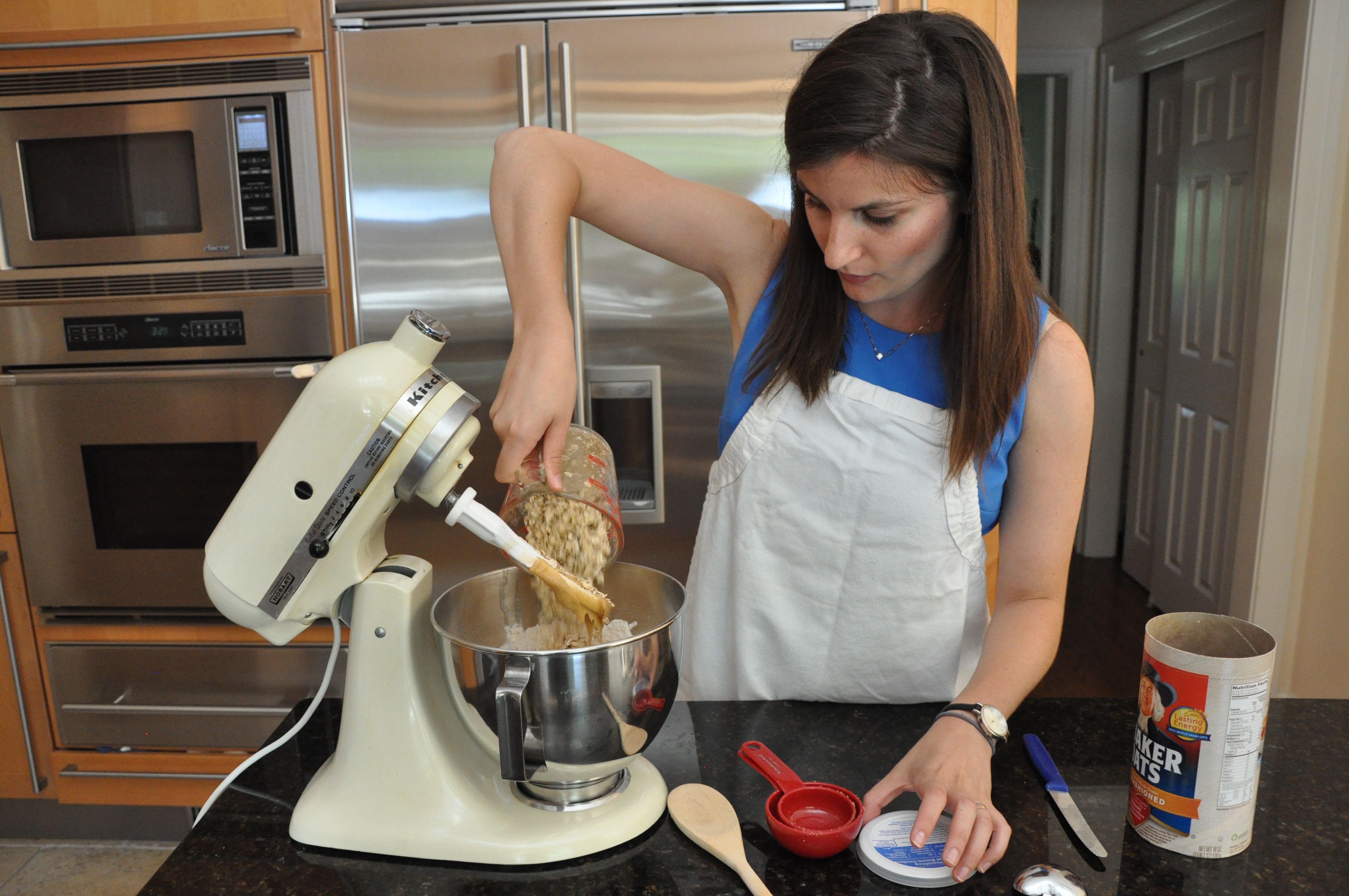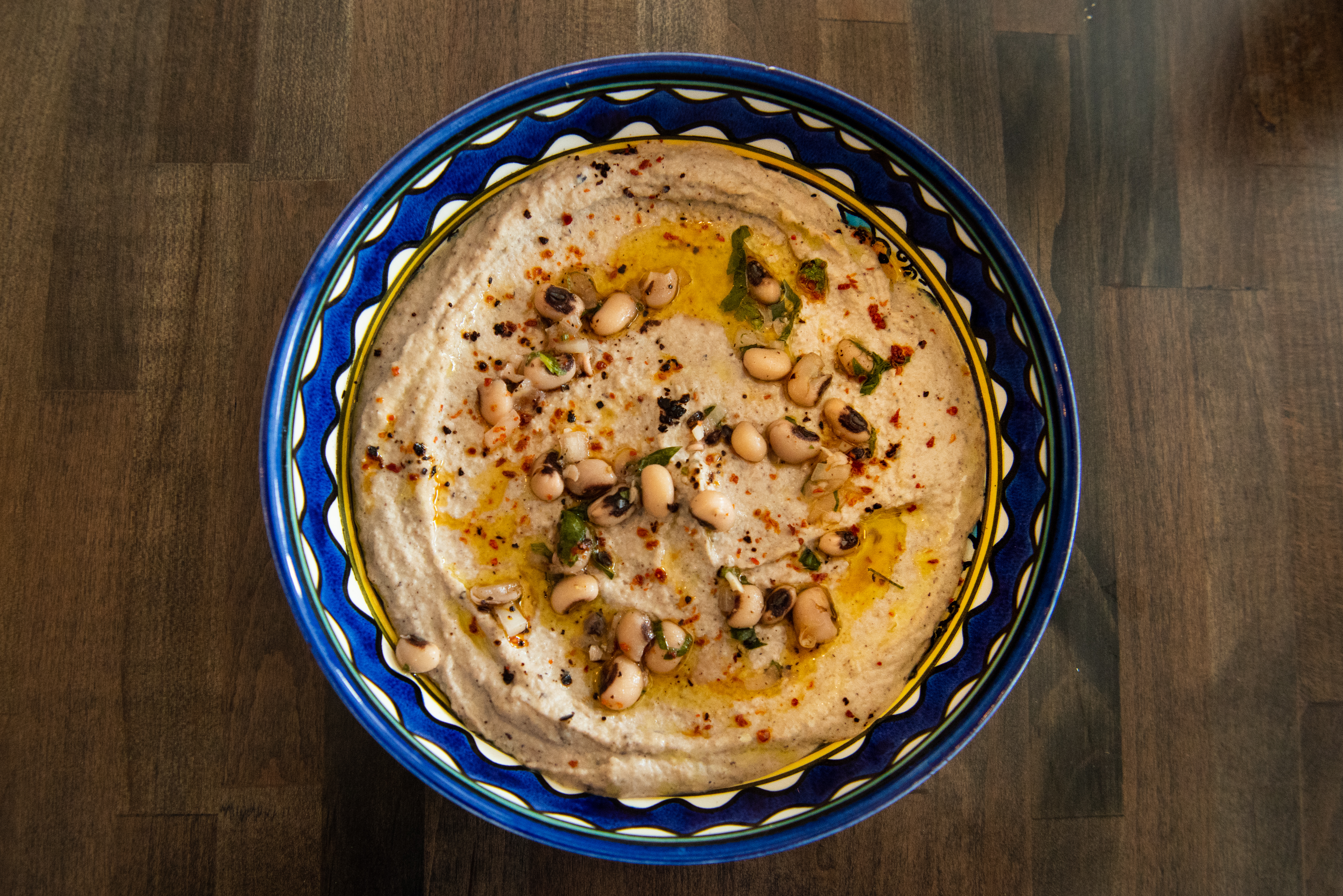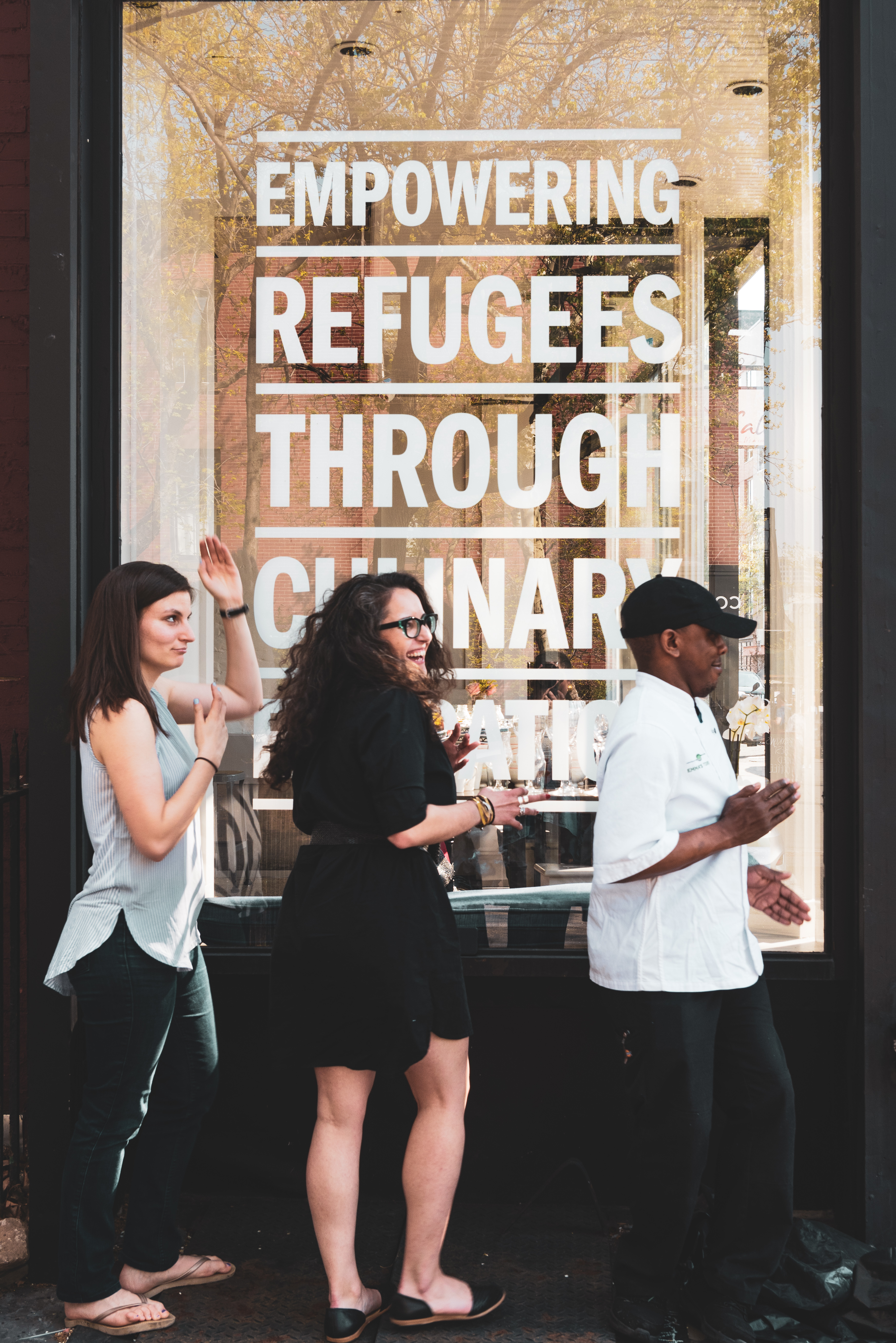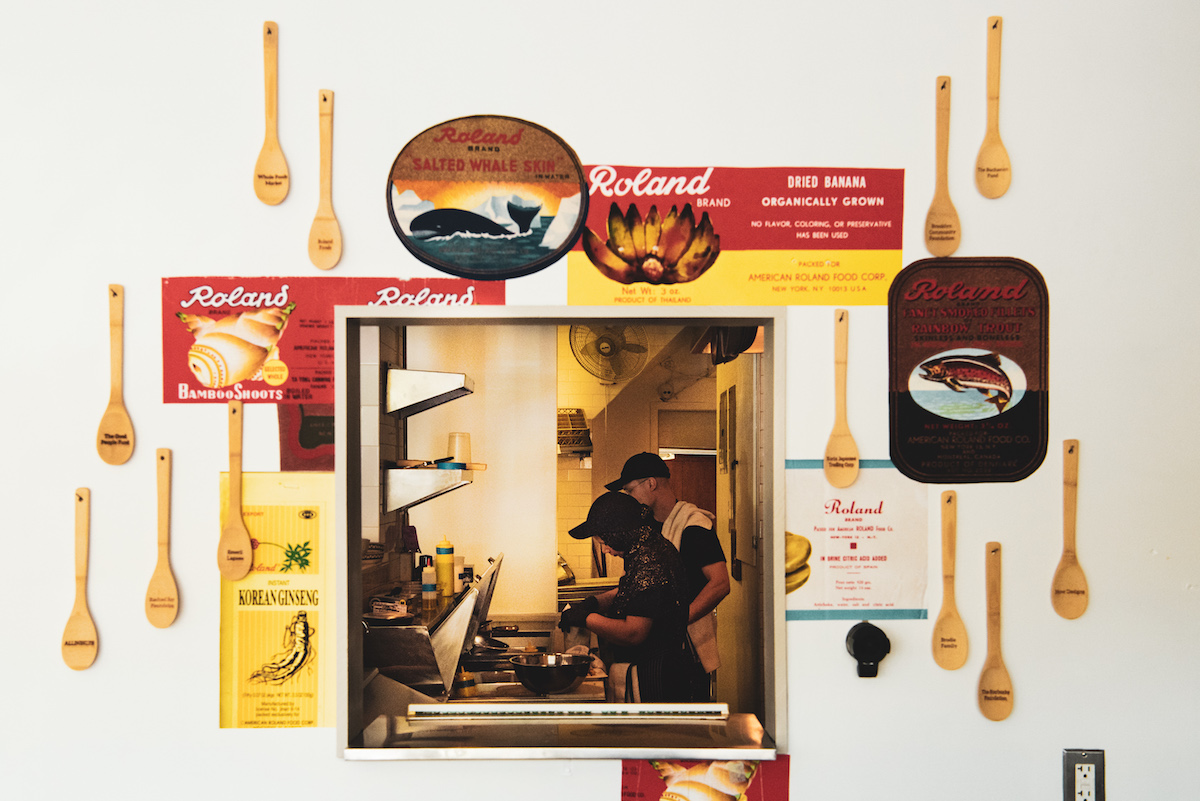On a recent Thursday night, I left my office to eat at Emma’s Torch, a new restaurant in Cobble Hill, Brooklyn that had taken over the space of a beloved fried chicken establishment. I indulged in black-eyed pea hummus with pita, an heirloom tomato salad, grilled branzino, a creamy cavatelli with summer squash, and a pistachio bread pudding so good I ate the entire serving even though I am kind of allergic to pistachios (what can I say, I’m a risk-taker). It was a lovely dinner in an equally lovely space, making it all the more impressive that Emma’s Torch was not just another seasonal Brooklyn restaurant with mason jar glasses, but a culinary training center for refugees.
Indeed, everything I ate that night was cooked by refugees from all over the world who are students of Emma’s Torch, a non-profit that offers not only culinary training for refugees, asylum seekers, and survivors of human trafficking, but ESL classes, interview prep, and help with job placement in the restaurant industry. With a name inspired by Emma Lazarus, the Jewish American poet whose words are inscribed on the pedestal of the Statue of Liberty, the restaurant and training center was started by Kerry Brodie, a 27-year-old Jewish woman originally from Potomac, Maryland. Brodie quit her job in public policy, went to culinary school, and started Emma’s Torch all within two years.
I had the pleasure of talking with Kerry about her journey into the non-profit world, how her own immigrant family inspires her work, and her *very* controversial bagel opinions.
Where did the idea for Emma’s Torch come from?
I was working in public policy and was really loving it — that was always what I wanted to do. But at the same time I was volunteering at a homeless shelter on my way to work a couple mornings a week, and I really liked this idea of direct service and also how feeding people can have value beyond just nutrition. I felt like there was something there.
For a long time, I would joke with my husband that, “Someone should do this and I want to go work for them.” Eventually my husband was like, “Okay, who’s permission do you need? Who are you waiting for, and why can’t that person be you?” So, in a move that was very uncharacteristic, I took that question and ran with it.

How do you actually go about starting a non-profit? What was the first step?
I’m very lucky: I have tough-love parents who I am very grateful for. When I told them this is what I wanted to do, they were like, “That’s cute, why you?” They also stressed, “Do your homework. The world doesn’t need another well-intentioned person. Do your homework and make sure you’re the right person to be doing this.”
So I spent a lot of time not fundraising, not actually starting anything, just becoming an expert on this idea. I talked to anybody who would talk to me about programs they created, how they created them, what worked, what didn’t, and what the community really needs. So that was the first three of four months. The end of that, I hit a point where I was like, now I actually have to set up the legal framework. The big turning point, when it went from “I might have something” to “oh, I have something,” was being accepted by the New York Lawyer’s Alliance, which means they took on all of our legal work, creating the non-profit structure, getting us IRS certification, all of that. Without that initial vote of confidence and support, it would have still been a crazy idea.
And then I started culinary school.
What was culinary school like for you?
I had never been in that type of setting before. I had never learned something that in some ways is more about muscle memory than other skills. I can write you a paper about the importance of chopping things in the right manner, but getting my body to learn how to do it is very different. I had a Master’s degree, I graduated with honors, and I don’t say that to brag — I say that because I was bad at culinary school. I had to learn to rely on my classmates. I had to buy extra potatoes to practice. It was really a wonderful experience of how amazingly food can bring people together, and I really valued that.
Why did you decide to focus on refugee population?
I had been working at the Human Rights Campaign where I was working with LGBTQ asylum-seekers, and it felt a lot like, “There but for the grace of God go I.” I’m a child of immigrants, my parents were immigrants from South Africa, but our immigration story was pretty easy in that sense. They came here, it was fine. But a generation back, the only reason I’m alive is that this country let in my great-grandparents during the Holocaust. I’m forever aware of that, and aware of the obligation of making sure that the world never sits back and let’s something like that happen again. I think that it’s important to remember that closing our borders has real ramifications.
What did your Jewish upbringing look like?
I am a very proud lifer from the Charles E. Smith Jewish day school. We were raised always coming together around the Shabbat dinner, and every holiday was always a chance to bring together our community and bring together our family. Every week we’d have a conversation around the table that was either loosely based on the parsha [weekly Torah portion] or about an ethical dilemma, and I think that really strengthened how I think about things, how I debate things, just having that constant conversation about how lucky we are, how fortunate we are, and what obligation that bestows on us to do better in the world.

And all those examples revolves around food. Is that how you found meaning in focusing on food in particular?
I grew up spending hours and hours in the kitchen with my mother and my grandmother and their friends. That’s why it feels like home to me, and it’s exciting to have a new space that can feel like home to other people.
Who are some of the women you most admire?
Emma Lazarus, we were named after her. She was just such a badass. She had real chutzpah and really fought to be heard at a time when she could have easily stayed in the background.
I’ve also been really blessed with both of my grandmothers – one passed away two months ago, and the other is very much alive and I speak to her every day. Both of them quietly did so much in their communities. They were always the ones cooking for others. They were always the ones bringing people together and then taking a step back into the background. They taught me a lot about dignity and integrity — as well as a lot of fantastic recipes. I’ve been really blessed to be surrounded by strong, independent women, and women filled with lots of chutzpah.
What’s your ideal bagel?
This is pretty controversial: I like my bagels toasted. Cinnamon raisin bagel, toasted, with crunchy peanut butter. It’s really delicious. That’s really what I want to eat right now.
Favorite dish on the current Emma’s Torch menu?
Right now I am obsessed with our pistachio bread pudding. It is made with challah. It melts in your mouth. And I think it’s genius because Alex [Harris, culinary director] took a fundamentally not Middle Eastern, very American dessert, and he infused it with all of the flavors that you would find in baklava. On an intellectual level I love that, and on a deliciousness level, if you put it in front of me it will be gone in three seconds.
What does your Jewish observance look like now?
It’s a tough question. I was raised by parents who were basically like, learn about Judaism and make your own choices. Until running the restaurant, I was Shabbat observant. Opening the restaurant has made that impossible, temporarily. I’m probably one of those cautionary tales like, “Kerry thought she would go back, we’ll see what happens.” But I miss that. I’m actually trying to find ways to have the time off on Shabbat. My husband is a super, super secular Israeli, but we have our weekly Torah study together, and that’s part of our bonding. Whenever we can, we try to observe because we do find it meaningful.




